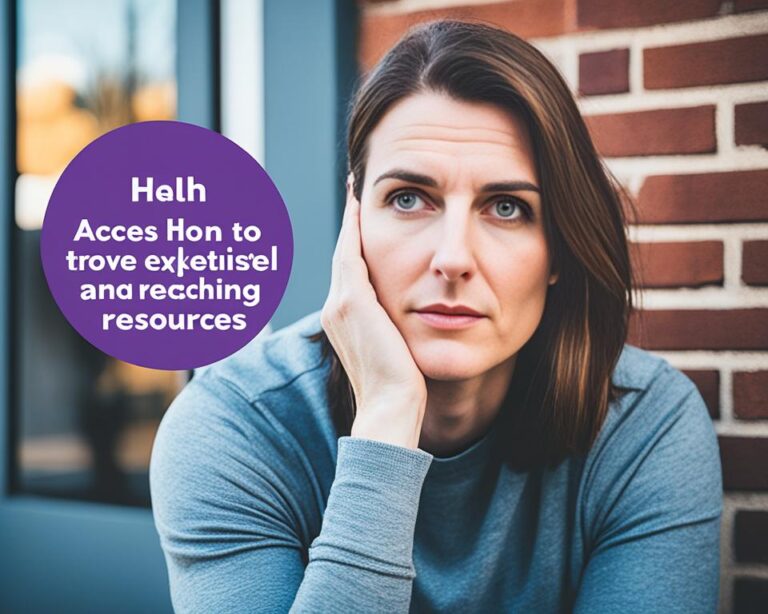Did you know women get more stressed than men? It’s true.
Stress is common, but it hits women hard. They do a lot every day. They work, care for families, and run homes. This makes them feel very stressed.
But, they can battle stress. They can learn how to deal with it. This way, they can be happy and healthy in life.
Key Takeaways
- Women are more likely to experience higher levels of stress than men.
- Stress can have a significant impact on women’s physical, emotional, and mental health.
- Effective stress management techniques empower women to take control of their well-being.
- Personalized stress management strategies can minimize the negative effects of stress in women’s lives.
- By prioritizing self-care and adopting stress management techniques, women can thrive in all aspects of their lives.
Understanding the Unique Stressors Faced by Women
Women deal with special kinds of stress. They juggle family, work, and caregiving roles.
This can be really hard on them.
Since COVID-19 started, things got even tougher.
They had to do more at home, like teaching kids. Some lost jobs or had to work without getting sick days. Many women also worked in hospitals, facing more stress.
Women might face violence at home or deal with unfair treatment. This can make their lives really hard.
It’s important to really understand what makes women stressed. Then we can help them feel better.
“The accumulation of these unique stressors creates a significant impact on women’s mental, emotional, and physical health.”

Impact of Unique Stressors:
- Mental load and emotional labor
- Increased responsibilities during the COVID-19 pandemic
- Higher rates of domestic violence
- Inequities based on race and age
We need to see what makes women stressed and help them. Giving support and resources can make a big difference in their lives.
How Stress Affects Women’s Health
Stress can really affect women’s health. It can lead to heart issues like high blood pressure. Women might also get tension headaches and gain weight from stress. They could have trouble getting pregnant and face menstrual problems. Changes in women’s hormones can make stress effects worse. It’s important for women to handle stress to stay healthy.
Stress can cause serious heart issues for women. It might make their blood pressure and heart rate go up. This could lead to heart disease later on. Learning how to manage stress can keep the heart healthy.
Stress often leads to tension headaches for women. It causes tight muscles around the head and neck. Women can use relaxation techniques to ease these headaches. Yoga or meditation are good ways to relax.
Stress can also make women gain weight. This happens because stress makes the body make more cortisol. This hormone increases fat storage. To avoid gaining weight, women should exercise and eat healthy. This helps manage stress too.
Stress might make it harder for a woman to get pregnant. It can mess up the hormones needed for ovulation. Using stress management techniques can help balance these hormones. This might make getting pregnant easier.
Stress can also change a woman’s menstrual cycle. It might cause irregular or missed periods. Managing stress well can help keep periods regular.
Overall, stress can harm women’s health in many ways. From heart problems to trouble getting pregnant, it’s a big issue. Women should use relaxation techniques to ease tension. Taking care of stress can improve their health and life.

Common Physical Health Issues Related to Stress in Women
| Health Issue | Description |
|---|---|
| Heart Problems | High blood pressure and accelerated heart rate |
| Tension Headaches | Muscle tension and constriction in the head and neck area |
| Obesity | Stress-related weight gain and increased fat storage |
| Difficulties Getting Pregnant | Interference with reproductive hormones and ovulation |
| Menstrual Cycle Issues | Irregular periods, heavier or lighter blood flow, missed periods |
Conclusion
Helping women handle stress well is key for their happiness and strength. They should take care of themselves and use stress-fighting ways that work for them. This helps keep stress low and health good.
Women need to understand their stress and have a plan to deal with it. Getting help from doctors or therapy groups is good. Managing stress takes time and effort, but it’s good for your body, feelings, and mind.
To manage stress better, women should exercise, sleep enough, and eat well. Having friends for support helps too. Trying out relaxing activities, being mindful, or doing fun hobbies can make you less stressed. This helps you take good care of yourself.
When women find stress solutions that fit their life, they do well at home and work. They live happier, healthier, and more joy-filled lives.

